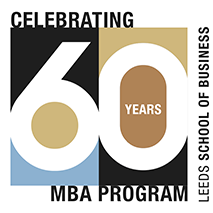Student Voices: DEI is the Future of Business

Sena Kavi (Mktg., '26) is a CESR Student worker who wrote this piece to illustrate her own experience with Diversity, Equity, Inclusion and Belonging (DEI & B), and how, based on her personal story, she views it as a powerful tool in the business world.
I am the child of immigrant parents.
I am a woman.
I am Muslim.
Along with all of that, I am an aspiring business professional.
Diversity, equity, and inclusion is a topic that is continuously bounced around in conversations surrounding the educational and professional sphere. For me, a safe work and educational environment is one that recognizes the intersectional identities of me and my peers, one that supports all of our experiences.
My parents came to the United States from Turkey searching for what is often called “The American Dream:” success and educational opportunities. They raised my sister and me to be proud of our Turkishness, faith, and background. Consequently, growing up in Boulder County, I have not been a stranger to feeling like the odd one out. Some of my earliest memories at school are of my classmates ridiculing me for stumbling through my limited English.
Diversity helps challenge stereotypes, improve communication skills, and empower students to feel like leaders,
- says Sena Kavi
At only five years old, I was left feeling inadequate, powerless, and alone. It is like a dark abyss: once someone is pushed into feeling those things, it can be incredibly difficult to climb out.
Having a work and school environment that uplifts and supports different abilities, identities, and backgrounds can have a tremendous positive impact on the morale and mental health of those within them.
The positive impacts of diversity in the workplace and in school are proven. A study done by Boston Consulting Group showed that diverse workforces are up to 19% more productive. In colleges and other educational settings, diversity helps challenge stereotypes, improve communication skills, and empower students to feel like leaders. However, simply acknowledging the benefits of DEI is not enough; companies and schools must find ways to enact resources to help students and employees in overcoming barriers. An excellent example in the educational realm is the Diverse Scholars Program for undergraduate students in the Leeds School of Business.
Having a work and school environment that uplifts and supports different abilities, identities, and backgrounds can have a tremendous positive impact on the morale and mental health of those within them,
- says Sena Kavi
DEI is crucial. It is undeniable that our history is full of countless instances of individuals being denied equitable opportunities and inclusive environments. Yet, issues of equity and diversity are not just a story of our past. Generations of inequity have allowed realities such as the gender gap and racial and socioeconomic inequalities to ingrain themselves in the roots of the business world.
Although businesses have made incredible strides in the area of diversity, equity, and inclusion in recent years, there is still a long way to go. There has been an observable slow down in the area of DEI within companies this year. With a looming recession, many companies such as Twitter are making major cuts to their DEI teams and initiatives.
I am grateful to be a part of a current generation full of young people and future professionals who are not afraid to speak up about their hopes and demands, and I am confident that a more diverse, equitable, and inclusive society is not far from our reach.
Inclusive excellence is an important focus area for Leeds and for CU Boulder. Discover more stories about DEI at Leeds.







